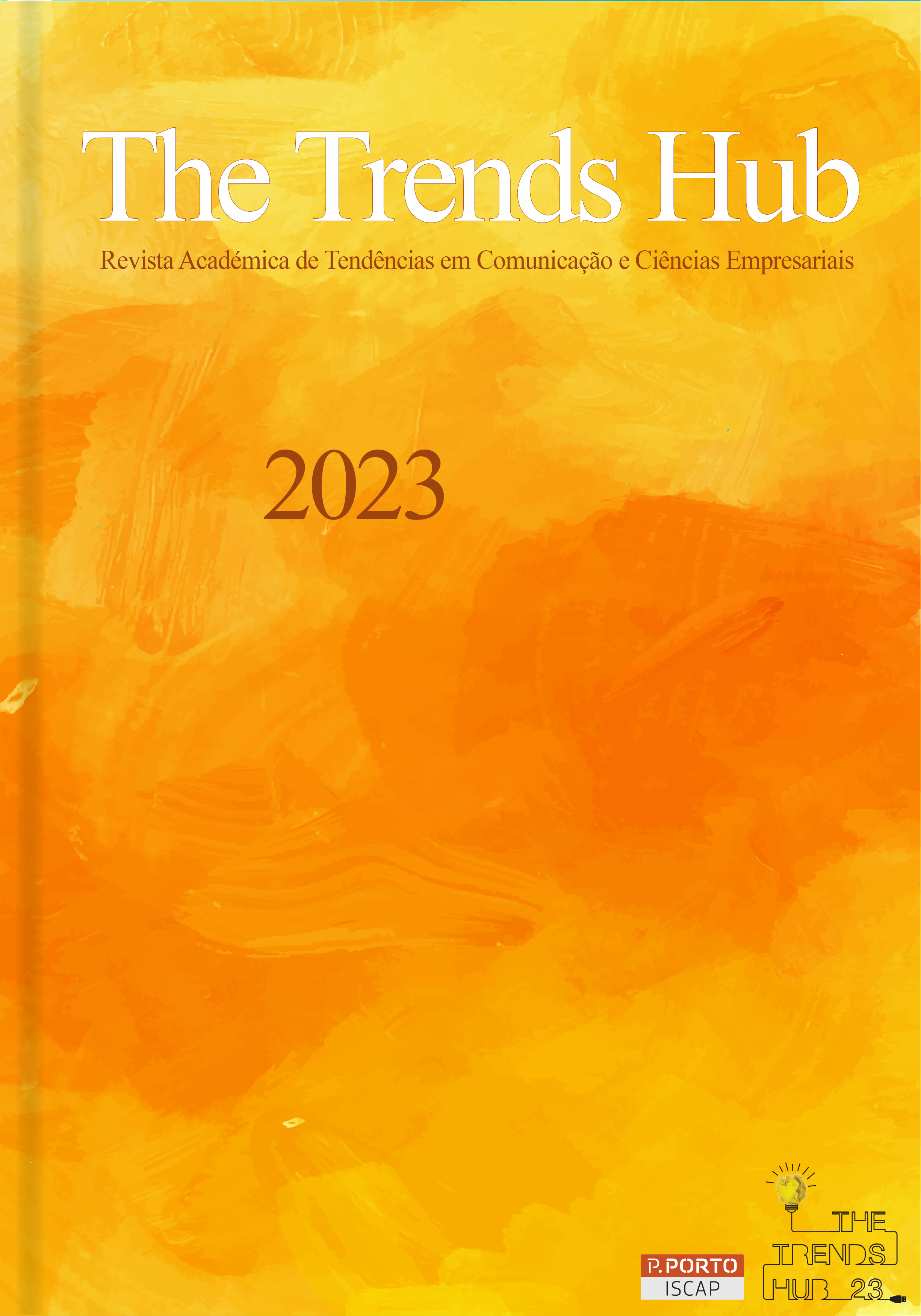Cancel Culture and 'Political Correctness' when communicating
DOI:
https://doi.org/10.34630/tth.vi3.5030Keywords:
Cancel Culture, Politically Correct, Communication, Freedom, ExpressionAbstract
Cancel Culture has been a controversial topic in recent years, and one of the biggest questions that arises is whether this trend is truly beneficial to society. With the rise of "political correctness", the way we express our opinions has also been affected, raising questions about how honest and authentic we can be without offending or harming others. In this article, I will explore the pros and cons of Cancel Culture and political correctness in communication, discussing their impacts on society and how we can create a healthier and safer online environment.
References
Ahuja, N., & Kerketta, J. (2021). The Omnipresence of Cancel Culture: A Balanced Contrast. International Journal of Humanities and Social Sciences, 11(1), 33-41. http://www.ripublication.com/ijhss21/ijhssv11n1_05.pdf
Barberá, P., Jost, J. T., Nagler, J., Tucker, J. A., & Bonneau, R. (2015). Tweeting From Left to Right: Is Online Political Communication More Than an Echo Chamber? Association for Psychological Science, 26(10), 1531–1542. https://doi.org/10.1177/0956797615594620
Baumann, F., Lorenz-Spreen, P., M., S., Igor;, & Starnini, M. (2020). Modeling Echo Chambers and Polarization Dynamics in Social Networks. Physical Review Letters, 124(4), 48301-48301. https://doi.org/10.1103/PHYSREVLETT.124.048301
Chiou, R. (2020). We Need Deeper Understanding About the Neurocognitive Mechanisms of Moral Righteousness in an Era of Online Vigilantism and Cancel Culture. Ajob Neuroscience, 11(4), 297-299. https://doi.org/10.1080/21507740.2020.1830872
Cinelli, M., De Francisci Morales, G., Galeazzi, A., Quattrociocchi, W., & Starnini, M. (2021). The echo chamber effect on social media. Proceedings of the National Academy of Sciences, 118(9), e2023301118. https://doi.org/doi:10.1073/pnas.2023301118
D. Clark, M. (2020). DRAG THEM: A brief etymology of so-called “cancel culture”. Communication and the Public, 5(3-4), 88-92. https://doi.org/10.1177/2057047320961562
Dzenis, S., & Faria, F. N. (2020). Political Correctness: the Twofold Protection of Liberalism. Philosophia, 48(1), 95-114. https://doi.org/10.1007/S11406-019-00094-4
Hundt, M., Schneider, B., El-Assady, M., A. Keim, D., & Diehl, A. (2017). Visual Analysis of Geolocated Echo Chambers in Social Media. The Eurographics Association, 125-128. https://doi.org/10.2312/EURP.20171185
Langham, J., & Gosha, K. (2018). The Classification of Aggressive Dialogue in Social Media Platforms. ACM SIGMIS Conference on Computers and People Research 60-63. https://doi.org/10.1145/3209626.3209720
Marsili, M. (2023). State-driven Hate Speech: From Nazi Germany to Date Conference on Freedom of Expression, Hate Speech, and Religious Freedom: A Human Rights Perspective, New York. https://dx.doi.org/10.5281/zenodo.7487198
Norris, P. (2020). Closed Minds? Is a ‘Cancel Culture’ Stifling Academic Freedom and Intellectual Debate in Political Science? Social Science Research Network. https://doi.org/10.2139/SSRN.3671026
Owen, J. J. (2005). The Tolerant Leviathan: Hobbes and the Paradox of Liberalism. Polity, 37(1), 130-148. https://doi.org/10.1057/PALGRAVE.POLITY.2300004
Rosenblum, M., Schroeder, J., & Gino, F. (2020). Tell it like it is: When politically incorrect language promotes authenticity. Journal of Personality and Social Psychology, 119(1). https://doi.org/10.1037/pspi0000206
Rosenfeld, M., & Bollinger, C. L. (1987). Extremist Speech and the Paradox of Tolerance. Harvard Law Review, 100(6), 1457-1481. https://doi.org/10.2307/1341168
Toler, L. (2022, 14/04/2022). The Mental Health Effects of Cancel Culture. Retrieved 08/04/2023 from https://www.verywellmind.com/the-mental-health-effects-of-cancel-culture-5119201
Downloads
Published
How to Cite
Issue
Section
License
Copyright (c) 2023 The Trends Hub

This work is licensed under a Creative Commons Attribution-NonCommercial-NoDerivatives 4.0 International License.


